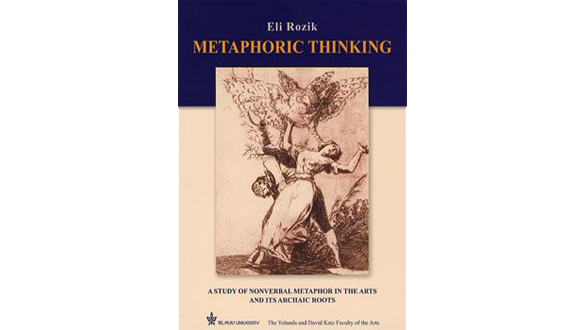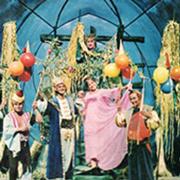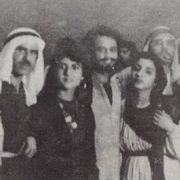Metaphoric Thinking: A Study of Nonverbal Metaphor in the Arts and its Archaic Roots
Edited by Eli Rozik
Tel Aviv University, Faculty of the Arts, 2008
Edited by Eli Rozik
Tel Aviv University, Faculty of the Arts, 2008
Eli Rozik Ph. D. (b. 1932) is professor emeritus of theatre studies.
He was head of the Department of Theatre Studies and Dean of the Faculty of the Arts at Tel Aviv University; specializes in theatre theory, particularly in nonverbal communication in performance analysis; and published numerous scientific articles in international leading journals, in Europe and the United States, and Metaphor in Theatre and Poetry (1981 - Hebrew), The Language of the Theatre (1991 - Hebrew & 1992 - English), Elements of Play Analysis (1992 - Hebrew), The Roots of Theatre - Rethinking Ritual and Other Theories of Origin (2002), and Generating Theatre Meaning - A Theory and Methodology of Performance Analysis (2008).
Prof. Rozik was the editor of the international journal Assaph - Studies in the Theatre, 1977-2000. To reach the website click here.
For the first time, this book suggests a comprehensive theory of nonverbal metaphor in the arts and an explanation for its vast appeal: its roots in preverbal imagistic thinking.
It challenges theories designed to solely explain verbal metaphor, while its main conjecture is that the study of nonverbal metaphor sheds light also on verbal metaphor.
Nonverbal metaphor is a phenomenon parallel to and no less widespread than verbal metaphor.
Its primeval roots in preverbal imagistic thinking are reflected in residual preverbal phenomena, such as dreaming, day dreaming and children imaginative play.
Metaphor thus reflects an alternative mode of thinking, which language had to integrate under a special convention.
This book suggests a definition of iconicity on imagistic grounds, alternative to the traditional semiotic one, and focuses on and explores the omnipresence of metaphor in the arts, with particular emphasis on theatre.
Illustration: etching by Francisco Goya, Los Caprichos.





